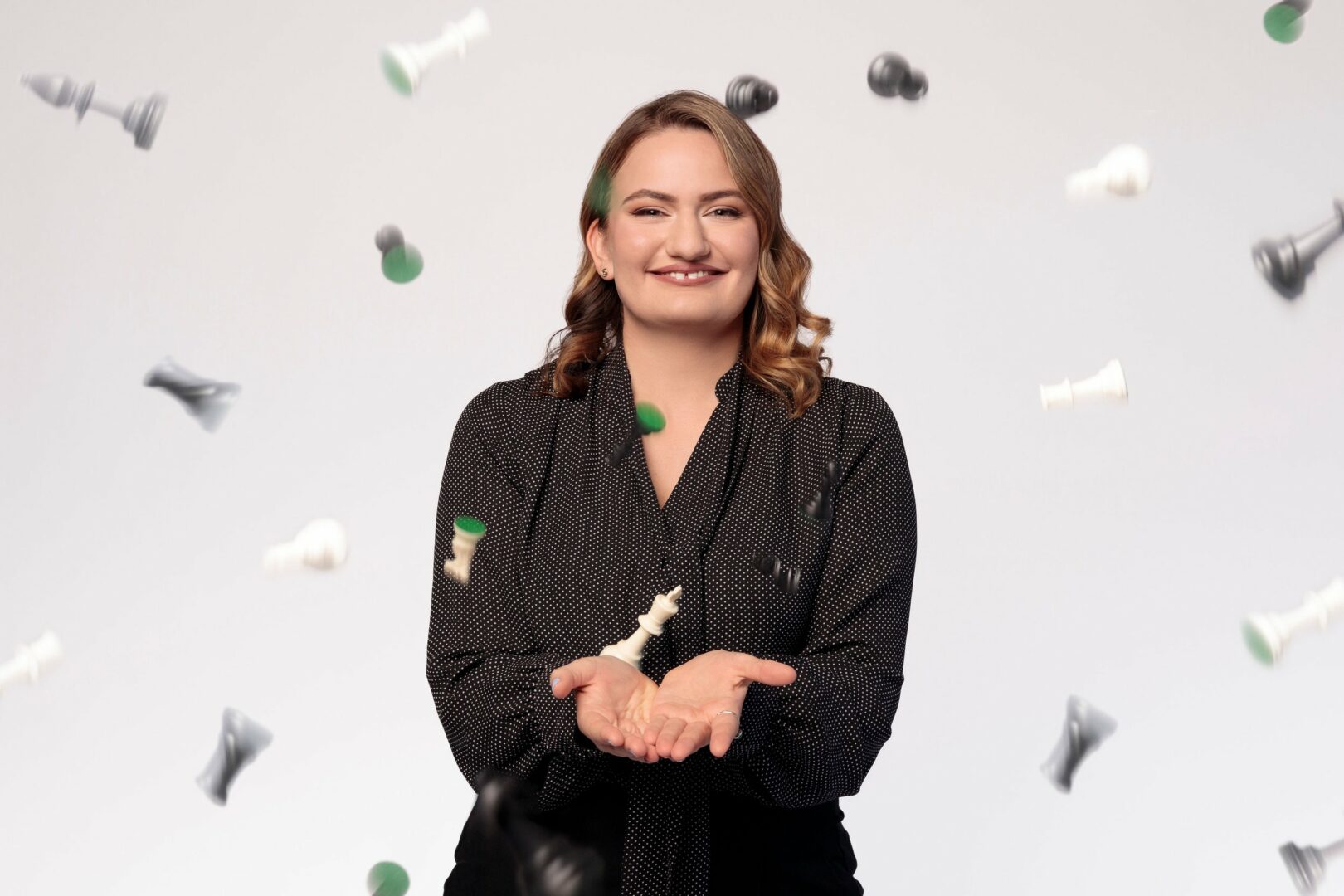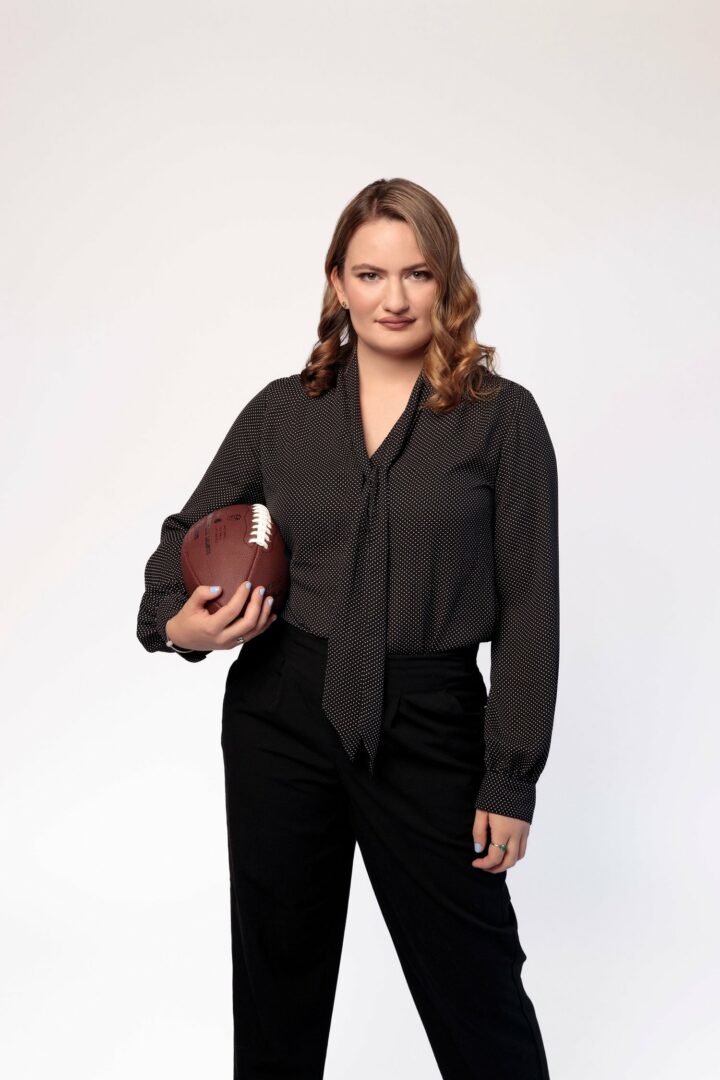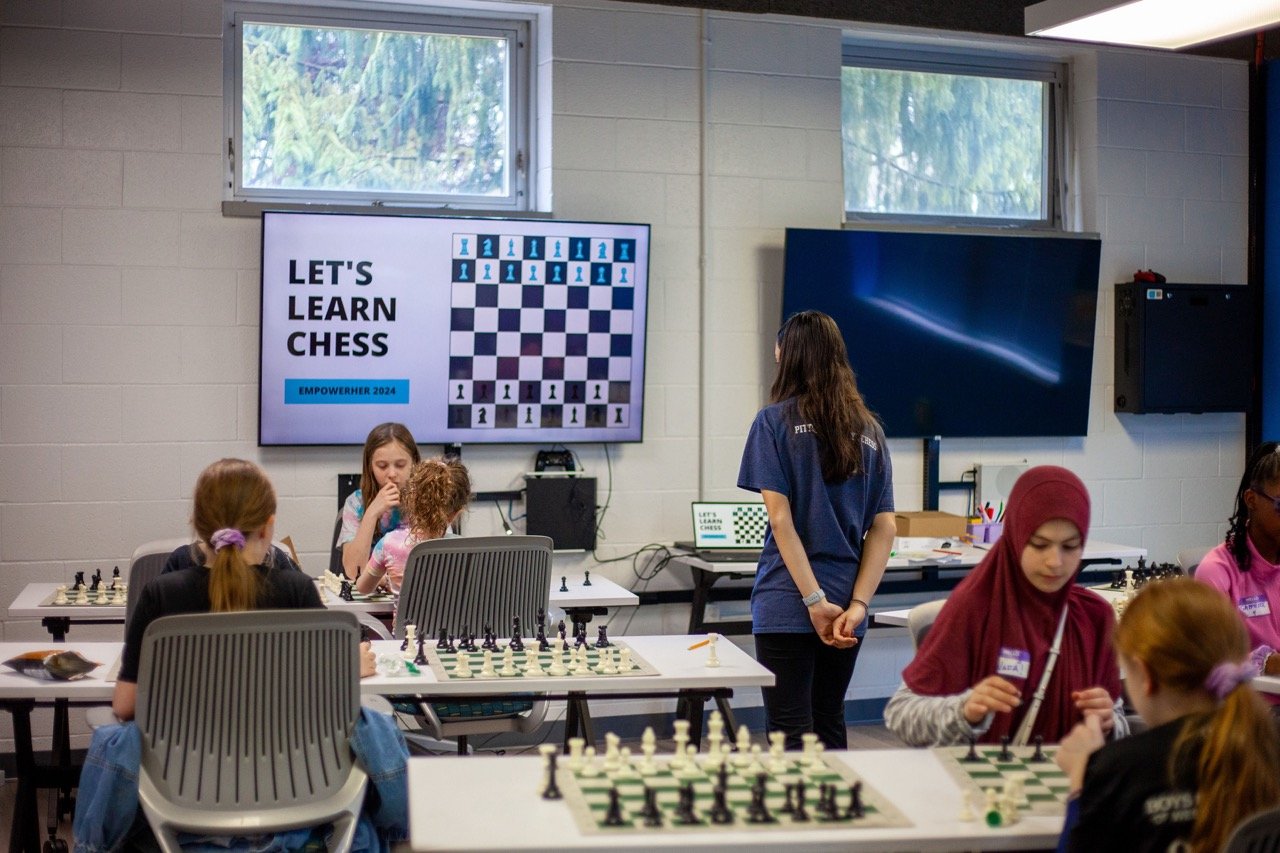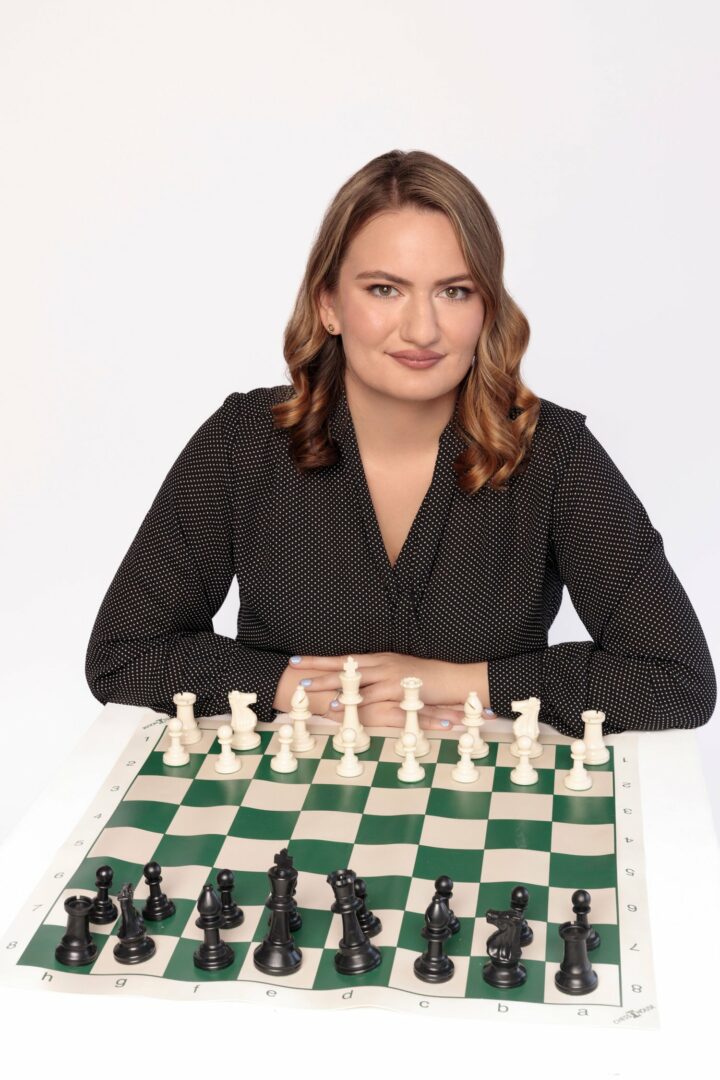We recently connected with Ashley Priore and have shared our conversation below.
Ashley, thank you so much for making time for us today. We’re excited to discuss a handful of topics with you, but perhaps the most important one is around decision making. The ability to make decisions is a key requirement for anyone who wants to make a difference and so we’d love to hear about how you developed your decision-making skills.
For me, decision-making has always been a matter of strategy—and I owe that to chess.
I started playing chess competitively at age four. Most people see the game as a test of intelligence or patience, but at its core, it’s about making decisions. Every move has consequences. You’re constantly evaluating patterns, anticipating outcomes, and deciding when to take risks or stay the course. At a young age, I was training my brain not just to think, but to decide—quickly, clearly, and confidently.
Chess also teaches you how to fail forward. I’ve made thousands of mistakes on the board. But each mistake sharpened my ability to assess situations more accurately and act more deliberately the next time. I learned to trust my intuition, but also to slow down when stakes are high.
As I grew older and stepped into leadership roles—founding a nonprofit at 14, launching a strategy firm, serving on boards—I realized how deeply those early chess lessons informed my real-world decision-making. Whether I’m in a boardroom, mentoring a student, or advising an executive, I rely on the same process: observe, analyze, and choose a path—not with fear, but with purpose.
Chess didn’t just teach me how to think. It taught me how to lead.

Appreciate the insights and wisdom. Before we dig deeper and ask you about the skills that matter and more, maybe you can tell our readers about yourself?
At my core, I harness the revolutionary power of chess to cultivate agency, develop leadership, and drive measurable impact.
I’m the Founder, President, and CEO of Queens Gambit, a national nonprofit using chess to build the next generation of leaders, and the Founder & CEO of Queenside Ventures, a woman-led consulting firm transforming the way we think about strategy. What excites me most is helping people—whether they’re students, athletes, CEOs, or changemakers—map out their personal chessboard: unlocking potential, embracing bold decisions, and reimagining what’s possible.
I began playing chess competitively at age four, and by eight, I was teaching it. At fourteen, I founded Queens Gambit with a mission to make chess more accessible and use it as a framework for confidence, critical thinking, and civic engagement. Today, we reach thousands of students each year, especially young women and students of color, and are proud to help position Pittsburgh as a rising hub for community-centered, equity-driven chess education.
Through Queenside Ventures, I have worked with NFL teams like the Tampa Bay Buccaneers, Indianapolis Colts, Kansas City Chiefs, Cleveland Browns, and Pittsburgh Steelers—integrating chess into leadership development and player performance. I also advise executives and public figures across industries on strategic planning, PR, intergenerational leadership, and brand development—all through the lens of chess thinking.
What’s new? One of the most exciting updates is the expansion of Project d4, a bold global initiative to teach one million women how to play chess and, more importantly, how to lead with it.
This work isn’t just my career—it’s my calling. And whether I’m writing, speaking, teaching, or strategizing, my goal is always the same: to help people become the leaders of their own lives. Because once you understand the board, you realize you’re never really stuck—you’re one strategic move away from transformation.
If you had to pick three qualities that are most important to develop, which three would you say matter most?
Being strategic doesn’t just mean having a plan—it means knowing when to pivot, how to anticipate the ripple effects of a decision, and how to think long-term while staying grounded in the moment. Chess taught me that. Every move has meaning. For those early in their journey, I encourage you to train your mind to think three steps ahead—but also, just as importantly, to understand why you’re making each move. Strategy is part vision, part discipline, and part self-awareness.
Adaptability has been essential. As someone who has led startups, advised CEOs, and served on nonprofit boards, I’ve learned that rigidity is the enemy of growth. The world shifts constantly—and if you’re not willing to evolve, you’ll be left behind. My advice? Be a sponge. Stay open to learning, surround yourself with people who challenge you, and don’t be afraid to reframe a failure as feedback.
Finally, leading with empathy is what makes everything else sustainable. At the end of the day, we’re not just building organizations or careers—we’re building communities. Leadership rooted in empathy means listening first, honoring lived experience, and understanding that people come with their own internal chessboards. If you want to lead others well, you need to meet them where they are.
My biggest piece of advice? Don’t wait to feel “ready.” Start where you are, with what you have—and make your first move. The board will reveal itself as you go.

Is there a particular challenge you are currently facing?
One of the biggest challenges I’m currently facing is a broader, cultural one: we’re living in a world that’s slowly losing its ability to think critically.
We’ve become accustomed to instant answers, quick fixes, and surface-level understanding. With so much information at our fingertips, we rarely pause to ask why, to analyze deeply, or to sit with complexity. In many ways, we’ve outsourced our thinking—and that’s dangerous.
That’s why my work with chess feels more urgent than ever. Chess is the antidote to a world of shortcuts. It forces you to slow down, examine the board, anticipate consequences, and understand that every decision affects what comes next. There’s no algorithm to win a game of chess—you have to engage fully, strategically, and thoughtfully.
Through Queens Gambit and Queenside Ventures, we’re not just teaching chess—we’re rebuilding the foundation of critical thinking. We’re using the board as a space to practice patience, creativity, foresight, and personal agency. Whether we’re working with students, athletes, or CEOs, the message is the same: strategy isn’t optional—it’s essential.
To overcome this challenge, I’m doubling down on programs like Project d4 and our leadership sessions, designing experiences that train people to think—not just react. My goal is to help people reclaim their power to question, to choose, and to lead. Because in a world of constant noise, the greatest strategy is knowing how to think for yourself.
Contact Info:
- Website: https://www.queensideventures.com
- Instagram: https://www.instagram.com/ashleylynnpriore/
- Linkedin: https://www.linkedin.com/in/ashley-lynn-priore/
- Youtube: https://youtube.com/channel/UCbgR89t74eiroUosTX0PjOw

Image Credits
Dominique Murray Photography
so if you or someone you know deserves recognition please let us know here.




